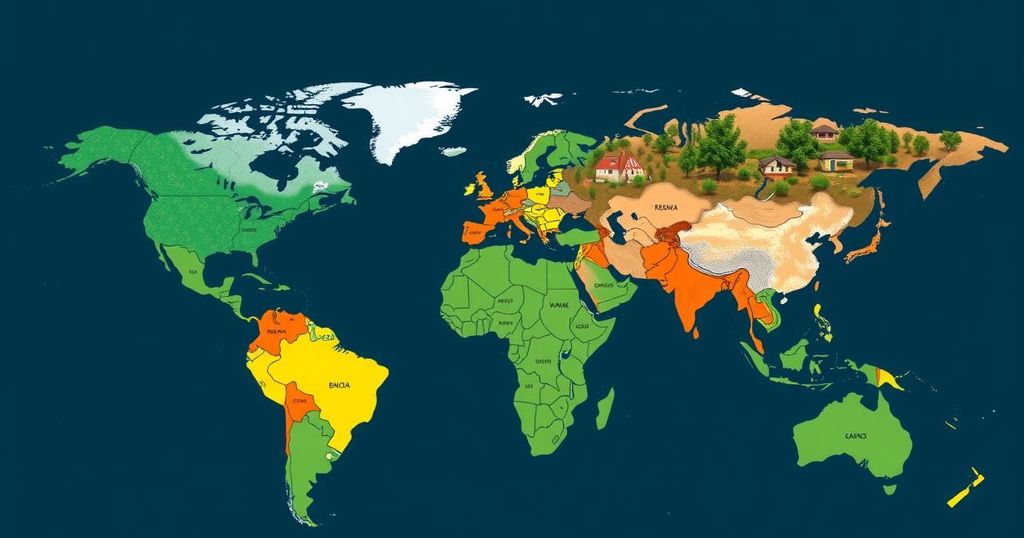Wealthier Nations Begin Funding Climate Change Damage in Poorest Countries
Wealthy nations have begun compensating poorer countries for climate change damages, exemplified by payments to families affected by Cyclone Freddy in Malawi. Approximately $720 million has been pledged for loss and damage funding, yet experts warn this amount will be insufficient as climate disasters intensify. Ongoing negotiations at COP29 aim to settle access to these funds, highlighting the urgency of accountability from affluent nations.
Recently, wealthier nations have begun to financially compensate poorer countries for damages caused by climate change. The devastating effects of Cyclone Freddy, which struck Malawi in 2023, exemplified this urgent need. Many families, including that of Christopher Bingala, were severely impacted, losing their homes and livelihoods. Fortunately, Bingala received approximately $750 in financial assistance, marking one of the first instances of “loss and damage” compensation specifically tailored for victims of climate-related disasters.
This funding initiative arises from the recognition that low-income countries, despite contributing minimally to global emissions, face the most extreme effects from climate change. In response, affluent nations pledged to create a dedicated fund for addressing such damages, with pledges totaling about $720 million to date from countries like the European Union, the United States, and the United Arab Emirates. However, experts caution that these funds may not suffice as climate-related disasters continue to escalate in severity.
At COP29 in Baku, Azerbaijan, discussions are underway to determine the distribution of these funds as part of broader climate finance strategies. Philip Davis, Prime Minister of the Bahamas, emphasized the responsibility of wealthy nations to address the consequences of their economic activities on vulnerable populations: “We just hope that the global north and the nations whose economy is fueled by the emissions — they come to the plate and take up their responsibility to look at what they’re causing us.”
In Malawi, the Scottish government pioneered this compensation initiative, offering cash grants to those affected. This program, implemented by the nonprofit GiveDirectly, provided assistance to nearly 2,700 families, enabling them to rebuild homes and invest in their futures after devastating losses.
As climate change intensifies, the need for adequate compensation funding is expected to rise significantly, with a recent study projecting costs to hit $250 billion annually by 2030. Davis asserts the importance of proactive measures from wealthy nations, warning that ignoring the plight of vulnerable countries will have dire repercussions beyond their borders: “If they do nothing, they will be the worst for it. When my islands are swallowed up by the sea, then what do my people do? They’ll either become climate refugees or they’ll be doomed to a watery grave.”
The topic of climate change compensation highlights the disparity between wealthy and impoverished nations in addressing the consequences of environmental disasters. Low-income countries often experience the harshest impacts of climate change, despite contributing minimally to global emissions. The establishment of financial mechanisms like the loss and damage fund reflects growing acknowledgment of this issue. Richer countries are increasingly called to bear responsibility for their historical contributions to climate change and the resultant hardships faced by less affluent nations.
The financial compensation for climate change damages signifies a critical step towards accountability for affluent nations. The ongoing discussions at COP29 seek to resolve funding distribution issues, while local initiatives show promise in alleviating hardships for affected families. However, as climate-related disasters become more prevalent, addressing these financial needs will be vital to ensuring resilience and recovery in vulnerable communities. Overall, the dialogue emphasizes the necessity for equitable solutions to effectively combat the global climate crisis.
Original Source: www.wprl.org




Post Comment